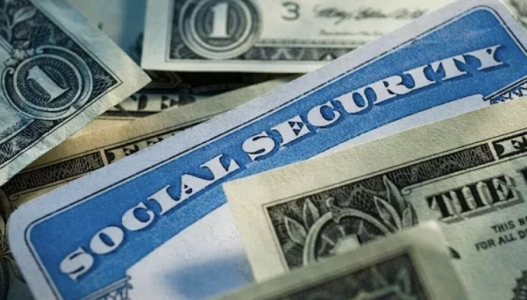Should Social Security be privatized? Here's what experts want you to consider first
By
Veronica E.
- Replies 0
For many Americans, Social Security is more than a monthly check—it’s a promise of stability after a lifetime of work.
It’s what helps millions of retirees pay the bills, cover prescriptions, and enjoy a little peace of mind in their later years.
But proposals to “privatize” the program have been gaining traction, and they could change everything.
Supporters say privatization offers more control and bigger returns, but critics warn it could bring serious risks—especially for those who can’t afford to lose.
Before forming an opinion, it’s worth exploring what this idea could really mean for you, your neighbors, and the future of retirement in America.

The idea of privatizing Social Security involves allowing individuals to invest a portion of their payroll taxes into private accounts—such as stocks, bonds, or mutual funds—instead of relying solely on the current government-managed system.
On paper, it may sound empowering.
But in reality, your retirement income would be tied to market performance, and that can bring added risk and uncertainty.
The stock market is known for its highs and lows.
While seasoned investors may be comfortable with that, most Americans don’t have the experience—or the stomach—for watching their savings drop overnight.
A major downturn close to retirement could leave people with much less than they planned for, especially if they panic and pull out of the market at the wrong time.
In a privatized system, that kind of mistake could be devastating.
One of the most valuable features of the current Social Security system is its predictability.
You know what you’re getting each month, regardless of market performance.
Privatization would eliminate that safety net. Instead, your retirement income would depend on how well your investments perform—something that’s hard to control and even harder to predict.
Financial literacy isn’t universal. Some people grow up learning how to manage money, while others never receive that guidance.
Those who can afford financial advisors would have a clear advantage in a privatized system, while those who can’t might struggle.
This could deepen retirement inequality and leave many people without the support they need later in life.
The wealthier you are, the easier it is to take investment risks—and to bounce back from losses.
People with higher incomes can diversify their portfolios and ride out downturns.
But lower-income individuals are less likely to have that flexibility. A single bad year could mean a major setback for someone already living on the edge.
Millions of Americans—especially women—step out of the workforce to care for children or aging loved ones.
Under the current Social Security system, those gaps in employment are still factored into your benefits.
But with privatized accounts, fewer contributions mean smaller savings, leaving caregivers more vulnerable in retirement.
Managing your own retirement funds means researching, monitoring, and adjusting investments regularly.
For people juggling jobs, caregiving, or health issues, that time just isn’t available.
And even for those who have the time, it may not be how they want to spend it.
Since 1935, Social Security has served as a lifeline for millions of Americans, regardless of how much they earned or how skilled they were with finances.
It was designed to provide basic economic security—especially for those who might otherwise fall through the cracks.
Privatization risks weakening that safety net and leaving the most vulnerable without the support they need when it matters most.
If you’re concerned about your retirement future, here are a few proactive steps to take:
Whether you’re nearing retirement or just thinking ahead, conversations about Social Security matter more than ever.
These decisions affect not only your own futures, but those of your children and grandchildren too.
Understanding the risks—and speaking up about what matters to you—can help protect the safety net so many Americans rely on.
Let’s keep the conversation going and make sure every voice is heard.
Read next: Record surge: Social Security filings set to top 4 million—Are delays next?

What’s your take on privatization? Do you prefer the peace of mind of a steady check, or are you open to taking on more investment responsibility? Let us know in the comments—we’d love to hear your thoughts!
It’s what helps millions of retirees pay the bills, cover prescriptions, and enjoy a little peace of mind in their later years.
But proposals to “privatize” the program have been gaining traction, and they could change everything.
Supporters say privatization offers more control and bigger returns, but critics warn it could bring serious risks—especially for those who can’t afford to lose.
Before forming an opinion, it’s worth exploring what this idea could really mean for you, your neighbors, and the future of retirement in America.

Proposals to change Social Security are raising new questions about retirement security and long-term stability. Image Source: YouTube / CBS News.
What privatization actually means
The idea of privatizing Social Security involves allowing individuals to invest a portion of their payroll taxes into private accounts—such as stocks, bonds, or mutual funds—instead of relying solely on the current government-managed system.
On paper, it may sound empowering.
But in reality, your retirement income would be tied to market performance, and that can bring added risk and uncertainty.
Market volatility could put your future at risk
The stock market is known for its highs and lows.
While seasoned investors may be comfortable with that, most Americans don’t have the experience—or the stomach—for watching their savings drop overnight.
A major downturn close to retirement could leave people with much less than they planned for, especially if they panic and pull out of the market at the wrong time.
In a privatized system, that kind of mistake could be devastating.
Also read: The $5,108 Social Security check: who qualifies and how?
No more guaranteed monthly checks
One of the most valuable features of the current Social Security system is its predictability.
You know what you’re getting each month, regardless of market performance.
Privatization would eliminate that safety net. Instead, your retirement income would depend on how well your investments perform—something that’s hard to control and even harder to predict.
Also read: A wave of early Social Security claims—Here’s what’s behind it
Not everyone starts from the same place
Financial literacy isn’t universal. Some people grow up learning how to manage money, while others never receive that guidance.
Those who can afford financial advisors would have a clear advantage in a privatized system, while those who can’t might struggle.
This could deepen retirement inequality and leave many people without the support they need later in life.
Also read: Could your Social Security benefits increase? Here’s the latest from Congress
More money, more options
The wealthier you are, the easier it is to take investment risks—and to bounce back from losses.
People with higher incomes can diversify their portfolios and ride out downturns.
But lower-income individuals are less likely to have that flexibility. A single bad year could mean a major setback for someone already living on the edge.
Caregivers and single parents could be left behind
Millions of Americans—especially women—step out of the workforce to care for children or aging loved ones.
Under the current Social Security system, those gaps in employment are still factored into your benefits.
But with privatized accounts, fewer contributions mean smaller savings, leaving caregivers more vulnerable in retirement.
Also read: Retirees on edge with “real and growing” anxiety about Social Security
Investing takes time, and not everyone has it
Managing your own retirement funds means researching, monitoring, and adjusting investments regularly.
For people juggling jobs, caregiving, or health issues, that time just isn’t available.
And even for those who have the time, it may not be how they want to spend it.
Also read: Social Security garnishments are rising—Here’s how to protect your benefits
The importance of a safety net
Since 1935, Social Security has served as a lifeline for millions of Americans, regardless of how much they earned or how skilled they were with finances.
It was designed to provide basic economic security—especially for those who might otherwise fall through the cracks.
Privatization risks weakening that safety net and leaving the most vulnerable without the support they need when it matters most.
Also read: Social Security goes digital: What to know about the new online SSN feature
What you can do now
If you’re concerned about your retirement future, here are a few proactive steps to take:
- Stay informed. Keep up with proposals and changes that could affect Social Security.
- Boost your financial literacy. Free resources can help you understand the basics of investing.
- Diversify your savings. If possible, look into IRAs, 401(k)s, or other retirement options.
- Speak up. Contact your lawmakers and let them know your concerns—your voice counts.
Whether you’re nearing retirement or just thinking ahead, conversations about Social Security matter more than ever.
These decisions affect not only your own futures, but those of your children and grandchildren too.
Understanding the risks—and speaking up about what matters to you—can help protect the safety net so many Americans rely on.
Let’s keep the conversation going and make sure every voice is heard.
Read next: Record surge: Social Security filings set to top 4 million—Are delays next?
Key Takeaways
- Privatizing Social Security would tie retirement income to the stock market, exposing Americans to unpredictable losses during downturns.
- Unlike the current system, privatized accounts offer no monthly guarantees, and success depends heavily on financial knowledge and timing.
- Caregivers, low-income earners, and those with limited access to investment tools could be left with significantly less support in retirement.
- Similar systems in other countries have led to disappointing results for retirees, reinforcing concerns about losing a critical safety net.
What’s your take on privatization? Do you prefer the peace of mind of a steady check, or are you open to taking on more investment responsibility? Let us know in the comments—we’d love to hear your thoughts!






